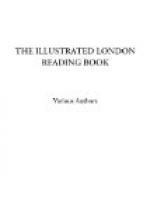We shall, therefore, utterly extinguish this melancholy thought of our being overlooked by our Maker in the multiplicity of his works, and the infinity of those objects among which He seems to be incessantly employed, if we consider, in the first place, that He is omnipresent; and in the second, that He is omniscient.
If we consider Him in his omnipresence; his being passes through, actuates, and supports the whole frame of nature. His creation, and every part of it, is full of Him. There is nothing He has made that is either so distant, so little, or so inconsiderable, which He does not essentially inhabit. His substance is within the substance of every being, whether material or immaterial, and as intimately present to it as that being is to itself. It would be an imperfection in Him, were He able to move out of one place into another, or to draw himself from any thing He has created, or from any part of that space which He diffused and spread abroad to infinity. In short, to speak of Him in the language of the old philosophers, He is a being whose centre is everywhere and his circumference nowhere.
In the second place, He is omniscient as well as omnipresent. His omniscience indeed necessarily and naturally flows from his omnipresence. He cannot but be conscious of every motion that arises in the whole material world which He thus essentially pervades; and of every thought that is stirring in the intellectual world, to every part of which He is thus intimately united. Several moralists have considered the creation as the temple of God, which He has built, with his own hands, and which is filled with his presence. Others have considered infinite space as the receptacle, or rather the habitation of the Almighty; but the noblest and most exalted way of considering this infinite space, is that of Sir Isaac Newton, who calls it the se sorium of the Godhead. Brutes and men have their sensoriola, or little sensoriums, by which they apprehend the presence and perceive the actions of a few objects that lie contiguous to them. Their knowledge and observation turn within a very narrow circle. But, as God Almighty cannot but perceive and know everything in which He resides, infinite space gives room to infinite knowledge, and is, as it were, an organ to omniscience.
Were the soul separate from the body, and with one glance of thought should start beyond the bounds of the creation, should it millions of years continue its progress through infinite space with the same activity, it would still find itself within the embrace of its Creator, and encompassed round with the immensity of the Godhead. While we are in the body, He is not less present with us, because He is concealed from us. “Oh, that I knew where I might find Him!” says Job. “Behold I go forward, but He is not there; and backward, but I cannot perceive Him; on the left hand, where He does work, but I cannot behold Him; He hideth himself on the right hand, that I cannot see Him.” In short, reason as well as revelation assures us that He cannot be absent from us, notwithstanding He is undiscovered by us.




